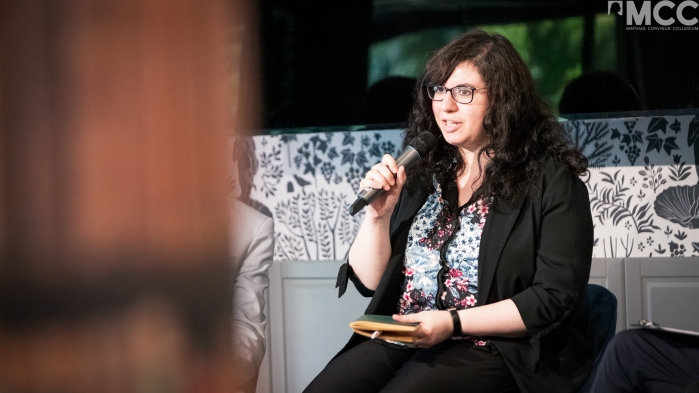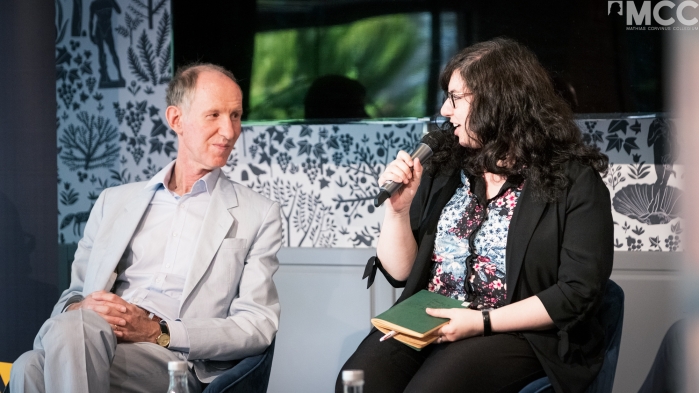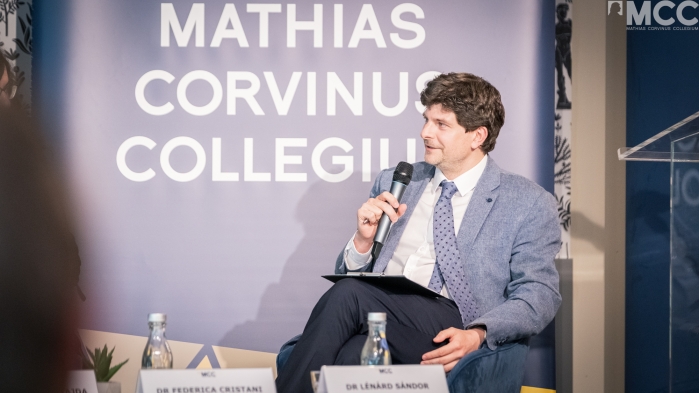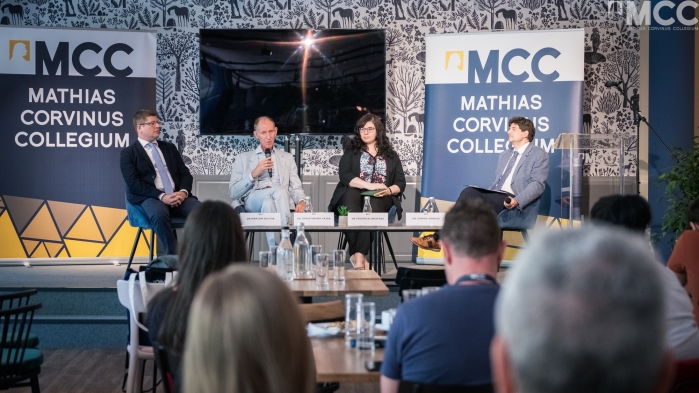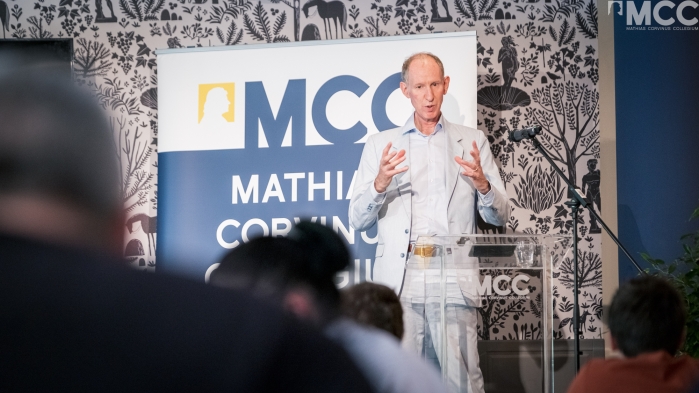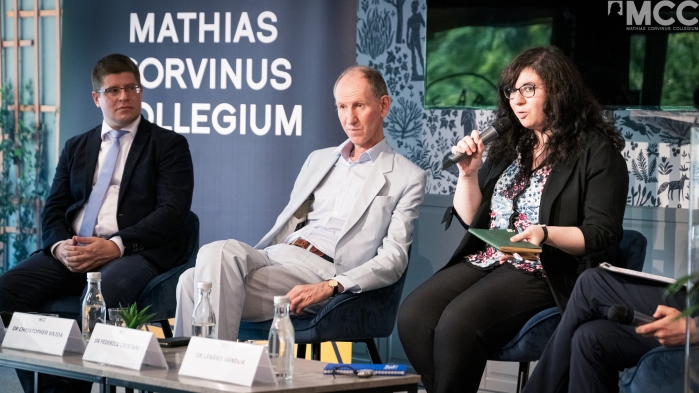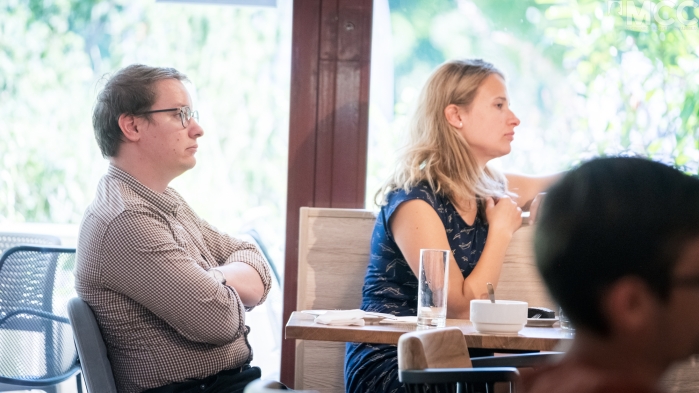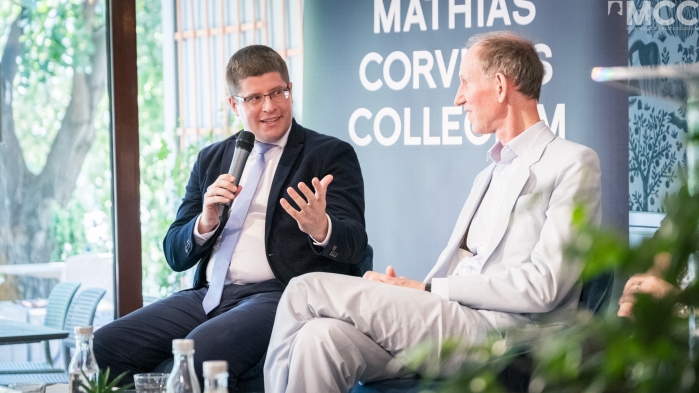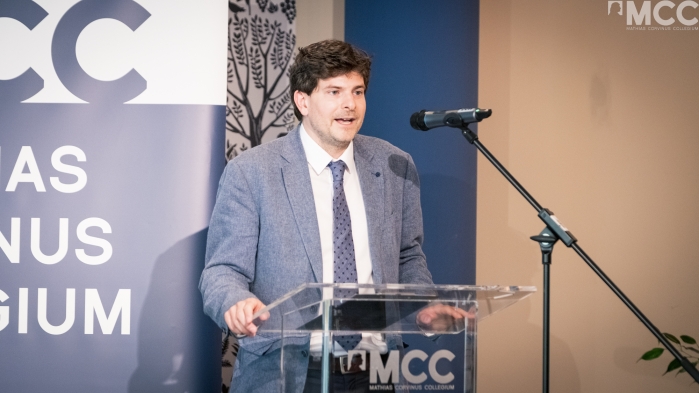Reading time: 3 minutes
Dialogue between courts is tremendously important, as the European Court of Justice is not infallible. It was one of the conclusions of the event organized by the Center for International Law of MCC about the importance of the European judicial dialogue based on mutual respect in which Christopher Vajda QC, former member of the Court of Justice of the European Union and Visiting Professor of King’s College London gave a presentation. After the presentation, Christopher Vajda QC, Federica Cristani, senior researcher at the Institute of International Relations in Prague, and Márton Sulyok, head of the MCC Center for Public Law, discussed the key aspects of judicial dialogue with Lénárd Sándor, the moderator of the event and head of the MCC Center for International Law.
A telling comparison describes the European integration as a table with 27 legs. The point is that the table plate alone could not stand without the legs as they are bound together in order that they can function properly. A successful European integration requires such a cooperation that includes a judicial dialogue that is based on mutual respect between various judicial forums. Such a dialogue also serves as a major building block of the „common European legal tradition”. In his inspiring presentation, Christopher Vajda QC highlighted how this dialogue works in practice as he took part many of the important decisions that are relevant in this respect. He pointed out that the continuous and open dialogue between national courts and the European Court is the cornerstone of the law of the European Union. Even though the European Court of Justice has taken the lion’s share in the formation of the legal order of the European Union, it is not an infallible institution, so it must pay careful attention to the opinions of national high courts and constitutional courts. The survival and legitimacy of European law cannot be based solely on the primacy of the law of the European Union. Rather, it depends on how carefully and thoroughly the European Court of Justice deliberates and acts in each case. Rejecting a centralization that is similar to the American model, he emphasized that the European Court should not operate in a vacuum and it needs to use the formal and informal channels of dialogue as widely as possible. The presentation was followed by a panel discussion. In this conversation, Federica Cristani, by looking at specific judgements, examined the dialogue between the Constitutional Court of Italy and the European Court. Beyond exploring the Hungarian situation, especially the relationship between the Constitutional Court and the European Court as well as the relevant preliminary ruling procedures, Márton Sulyok also highlighted the importance of education and training of judges in relation to the importance of judicial dialogue. Furthermore, the conversation shed light on the relationship between the European Court in Luxembourg and the European Court of Human Rights in Strasbourg as well as on the conditions under which the European Union can join the European Convention on Human Rights. Although the conversation was quite rich and covered many questions, due to the lack of time, it could not explore every aspect of the judicial dialogue including the dialogue between the courts of the Member States or the relationships between arbitral tribunals and the European Court. Therefore, the conversation will continue with these aspects of this crucially important topic.
